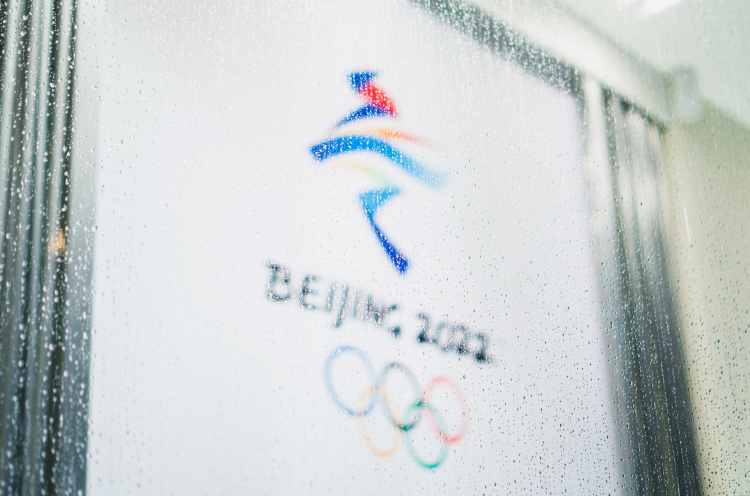Beijing 2022: Why Does Nobody Care?

Some of my fondest memories as a child were spent in front of a small, staticky television, watching athletes from around the world push themselves to the ultimate limit while representing their countries in custom uniforms decked in flags and cultural symbols.
The Olympics have always represented the best parts of humanity: thousands of athletes coming together from all over the world to try and prove themselves as millions watch them. I’ve never even been a big sports fan, but the Olympics felt like its own separate category of entertainment and so different than any sports you might watch in America.
But despite more events than ever before, 91 countries competing, and headline-fronting upsets and records, no one is watching the Olympics. NBC, the official broadcaster of the Olympics, is reporting some of their lowest Winter Olympic viewership ever.
This makes sense though, because no one is watching TV like they used to, in fact NBC was expecting this. But have the Olympics made the jump to streaming success yet?
NBC’s streaming platform, Peacock, has an estimated 20 million active monthly accounts. NBC has claimed to be on track with their estimated viewership for this Winter Olympics, but a platform like Peacock is so much smaller than other streaming platforms that there’s no way it could be equal to the monetary success the Olympics has been in the past. Regardless of how much I enjoy the Olympics, as a student I’m not going to indulge in another streaming service subscription--and I'm sure most others on a budget would agree. With Peacock’s primary audience being 35-44 year olds, NBC is missing out on a huge population of future audiences. If a more popular streaming platform like Netflix or even Disney+ were to pick up the Olympics, I have no doubt that it would have a great reception. Even more, if NBC were to make certain events free to view or discount their prices for students and youth, they'd be able to establish a more permanent fan base amongst the younger generations that use those platforms
Image credit: Gary Ruiz/UnsplashIt's not as if our generation lacks interest in the athletes or their personalities; in fact many athletes have gone viral on TikTok and gain huge followings regardless of their actual performance at the games. The Olympians go viral from their TikToks showing behind the scenes looks at the Olympic village, meeting fellow competitors from around the world and even sharing outfit hauls of their athletic gear. Even the Paris 2024 Summer Games marketing team has hopped on TikTok and fully embraced Gen-Z trends and bizarre humor, earning over 500 thousand followers with the games still two years away.
The whole idea of the Olympics will continue to have appeal regardless of generation: what other event is as universal, diverse and an attestation to humanity’s abilities? Media companies need to focus on not losing momentum with future audiences - even if that means lowering prices or allowing free-with-ads streaming.
This year does provide unique challenges to past games in terms of viewership. The Tokyo Summer Olympics were played only 7 months ago and since one of the Olympics’ biggest appeals is its rarity and limited chances to watch it, the content pool may be oversaturated following the summer games. This is also the second Olympics to be performed with little to no audience and limited content of the host country’s culture due to COVID-19 restrictions. B-roll of the surrounding city and the cultural excursions with the hosts that are played in between competitions make watching the Olympics such a unique and rich experience. Hopefully by 2024 restrictions will be completely gone and the Olympics will be able to be enjoyed to the fullest.
This season’s host also provides problems as many people are choosing to boycott watching the games due to China’s human rights violations. The US, Britain, Australia and Canada have all participated in a diplomatic boycott of the Beijing games due to “the PRC’s ongoing genocide and crimes against humanity in Xinjiang and other human rights abuses.” This is a valid reason for foregoing support, and certainly not the first time it has been done, but I hope fans will continue to watch the Olympics in future games.
Image Credit: Kuzzat Altay/UnsplashMore than anything, I’m just sad that I can’t enjoy the Olympics like I was able to in the past. I’m sad that such an exciting and unifying event is losing support and that it may not even be relevant in the future. I almost feel a sense of FOMO (Fear of Missing Out) every time I see a headline of an event I didn’t get to watch, or an American athlete setting a record or winning a medal. I don’t doubt that there are many others who are like me and feel the nostalgia and memories that the Olympics evoke and wish that there were more universally accessible ways to watch the Olympics.
Stars of my youth like Michael Phelps, Gabby Douglas and Shaun White—most of whom compete in sports that I’ve never even tried—influenced and inspired me unlike any other role models in modern media. I can still remember how in awe I was by the Vancouver 2010 Winter Game’s opening ceremony, where they displayed the history of Canada’s First Nations, or by the simultaneous beauty, poise, strength and dominance of USA’s 2012 Women’s gymnastics team.
The Olympics, to me, were inspiration and education; lessons of sportsmanship, culture and the never-ending drive of humanity to succeed. I just think it’ll be a shame if no one cares about them anymore.









